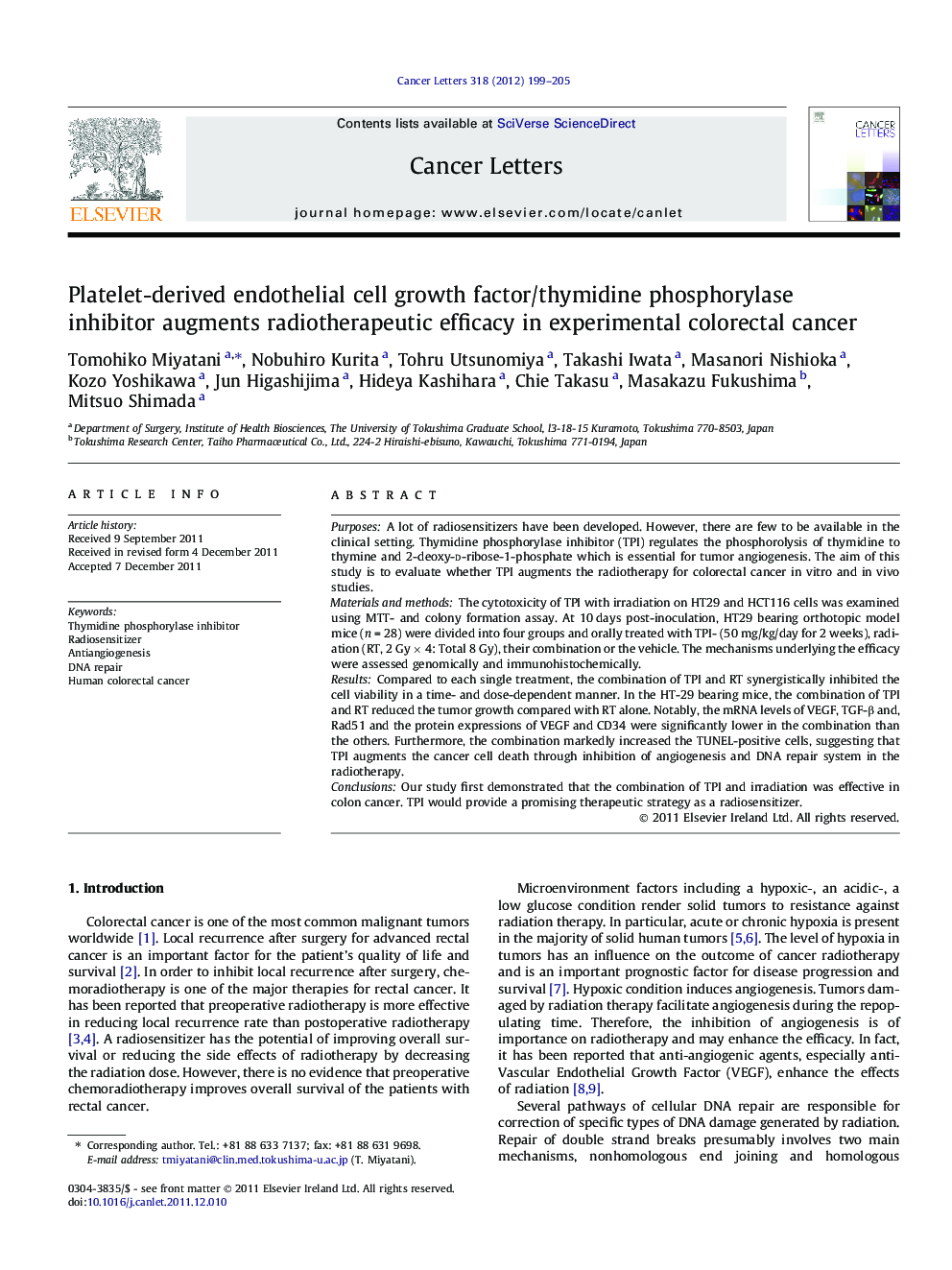| Article ID | Journal | Published Year | Pages | File Type |
|---|---|---|---|---|
| 2113398 | Cancer Letters | 2012 | 7 Pages |
PurposesA lot of radiosensitizers have been developed. However, there are few to be available in the clinical setting. Thymidine phosphorylase inhibitor (TPI) regulates the phosphorolysis of thymidine to thymine and 2-deoxy-d-ribose-1-phosphate which is essential for tumor angiogenesis. The aim of this study is to evaluate whether TPI augments the radiotherapy for colorectal cancer in vitro and in vivo studies.Materials and methodsThe cytotoxicity of TPI with irradiation on HT29 and HCT116 cells was examined using MTT- and colony formation assay. At 10 days post-inoculation, HT29 bearing orthotopic model mice (n = 28) were divided into four groups and orally treated with TPI- (50 mg/kg/day for 2 weeks), radiation (RT, 2 Gy × 4: Total 8 Gy), their combination or the vehicle. The mechanisms underlying the efficacy were assessed genomically and immunohistochemically.ResultsCompared to each single treatment, the combination of TPI and RT synergistically inhibited the cell viability in a time- and dose-dependent manner. In the HT-29 bearing mice, the combination of TPI and RT reduced the tumor growth compared with RT alone. Notably, the mRNA levels of VEGF, TGF-β and, Rad51 and the protein expressions of VEGF and CD34 were significantly lower in the combination than the others. Furthermore, the combination markedly increased the TUNEL-positive cells, suggesting that TPI augments the cancer cell death through inhibition of angiogenesis and DNA repair system in the radiotherapy.ConclusionsOur study first demonstrated that the combination of TPI and irradiation was effective in colon cancer. TPI would provide a promising therapeutic strategy as a radiosensitizer.
